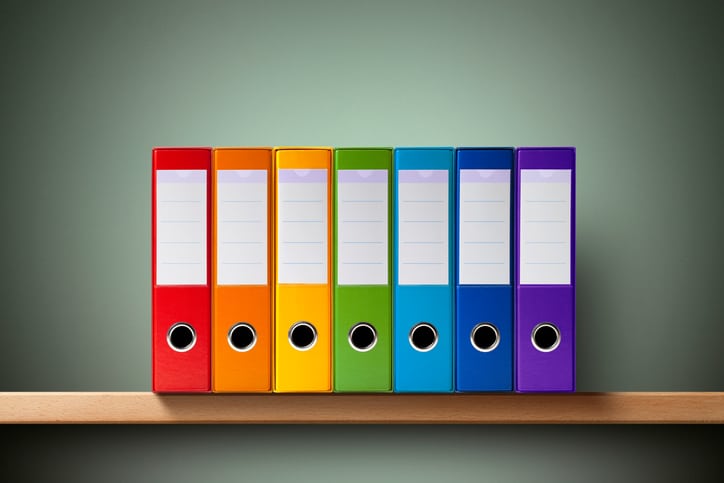The start of a New Year is a great opportunity to do some financial housekeeping! Which documents and records should you keep and which ones can you throw away?
WHAT IS THE STARTING POINT FOR KEEPING GOOD FINANCIAL RECORDS?
Develop a filing system. Set up a file for:
- Bills Due: Immediately after opening mail, file bills you have to pay.
- Credit Cards: File an annual credit report and your current monthly statement.
- Bank Accounts: Keep your monthly statement until it is reconciled and the next monthly statement when it has come in.
- Investments and Retirement: file monthly account statements. Keep year-end statement.
WHAT OTHER RECORDS ARE IMPORTANT TO ORGANIZE?
- Auto: title, maintenance records, warranties.
- Home: Utility statements. Purchase records, receipts and warranties for any home services, repairs, or equipment (such as lawn mowers).
- Healthcare: Medical records, vaccination information, receipts.
- Insurance: Any insurance policies you have: home, life, auto, medical, personal property, and so on.
WHAT ABOUT TAX AND ESTATE RECORDS?
- File Supporting Tax Records: W-2s, 1099s, charitable contribution receipts, and other items pertaining to the current tax year.
- Tax Returns: Keep tax returns and supporting documents for at least three years.
- Estate Plan: All current, executed estate-planning documents, list of beneficiary designations.
FINAL TIPS?
Ideally, keep a list of your advisors and their contact information.
Make a back-up, either a copy of key documents (offsite) and/or a digital scan file to cloud storage.
This segment originally appeared on WBIR on 1/14/18.



